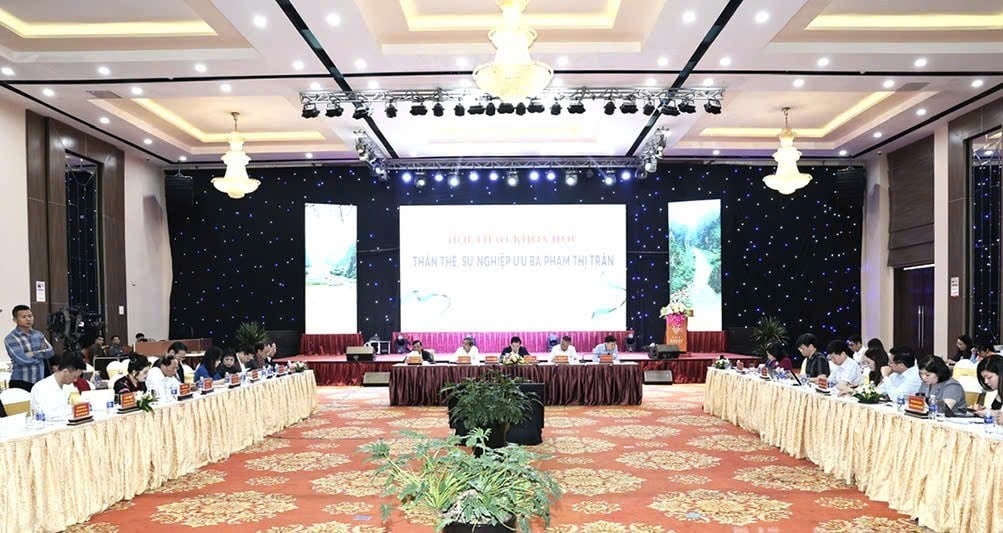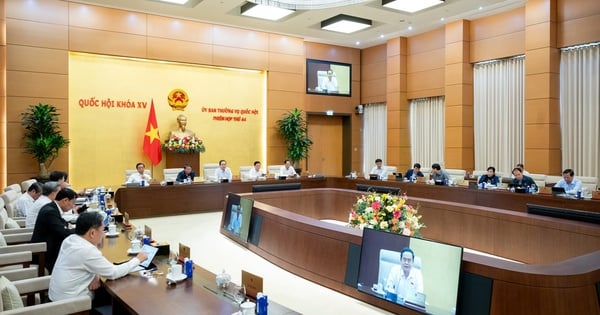American Joshua Zerkel thought he had reached his limit with his packed weekly meeting schedule.
“I want to cry when I look at my meeting schedule,” said the marketing director at business management app company Asana. Back-to-back meetings make it difficult for him to get work done.
Zerkel's growing anxiety was recognized by the company , which proposed a temporary cancellation of regular meetings. They called it Meetings Doomsday .
“I think things are getting better,” Zerkel said.

Illustration: Washington Post
Meeting overload is a problem for many office workers. A new study by Microsoft found that 68% of people say they are interrupted and unable to focus because of meetings.
Companies increased meetings during Covid-19 to stay connected with employees. The habit is still there four years later, but companies are rethinking their meeting culture. They are cutting back on meetings to boost productivity and reduce employee burnout.
“There is a high level of interest in office meetings,” says Steven Rogelberg, a professor at the University of North Carolina.
Zerkel's nine-person team removed Wednesday meetings from their schedules, saving 11 hours a month. Then, Doomsday Meetings spread to 60 people, prompting the company to implement a manual instructing departments to reduce meetings as a rule.
“We carefully change the schedule and structure of meetings,” says Rebecca Hinds, Asana’s head of strategy. “We cancel meetings that don’t have much substance.” At the same time, leaders encourage people to decline meetings that aren’t valuable.
In late January, e-commerce platform Shopify asked employees to cancel all meetings for two weeks. By July, employees expect to reduce meetings by 14% and by the end of the year by 18%.
Last year, software company Techsmith went meeting-free for a month, offering text or video calls. An internal survey found that employees were 15% more productive, and 85% identified meetings they would skip or shorten. Attendance was also reduced.
“We protect our employees’ energy so they can do their best work,” says CEO Wendy Hamilton.
Automation platform Zapier has adopted a “focus week” policy for employees, where each person sets goals and priorities for the week. They don’t eliminate meetings altogether, but they encourage them to be avoided if they’re not necessary.
80% of employees say they've accomplished their goals, according to a survey by Brandon Sammut, director of people at Zapier.
Workforce organization app Slack also rolled out Summer Focus Fridays and Innovation Weeks that allow employees to work in focused, uninterrupted sessions.
They're experimenting with cutting meetings by 50% and encouraging more downtime. Slack uses AI to summarize key points so employees can skip meetings.
However, this change also brings many challenges. In some cases, the reduction in meetings means less opportunity to learn and observe from others.
Professor Rogelberg says that meeting-reduction strategies will be effective if they reach out to the entire department. Leaders are responsible for planning and engaging others, while employees are responsible for developing their own goals. “That combination will make it less shocking for them when the meeting culture changes,” he says.
Zerkel is grateful to the company for the new schedule. “They were brave and resolute about the changes,” he said.
Ngoc Ngan (According to Washington Post )
Source


![[Photo] Welcoming ceremony for Prime Minister of the Federal Democratic Republic of Ethiopia Abiy Ahmed Ali and his wife](https://vstatic.vietnam.vn/vietnam/resource/IMAGE/2025/4/15/77c08dcbe52c42e2ac01c322fe86e78b)
![[Photo] The two Prime Ministers witnessed the signing ceremony of cooperation documents between Vietnam and Ethiopia.](https://vstatic.vietnam.vn/vietnam/resource/IMAGE/2025/4/15/16e350289aec4a6ea74b93ee396ada21)
![[Photo] Prime Minister Pham Minh Chinh holds talks with Ethiopian Prime Minister Abiy Ahmed Ali](https://vstatic.vietnam.vn/vietnam/resource/IMAGE/2025/4/15/4f7ba52301694c32aac39eab11cf70a4)
![[Photo] National Assembly Chairman Tran Thanh Man attends the summary of the organization of the Conference of the Executive Committee of the Francophone Parliamentary Union](https://vstatic.vietnam.vn/vietnam/resource/IMAGE/2025/4/15/fe022fef73d0431ab6cfc1570af598ac)

![[Photo] General Secretary To Lam receives Ethiopian Prime Minister Abiy Ahmed Ali](https://vstatic.vietnam.vn/vietnam/resource/IMAGE/2025/4/15/086fa862ad6d4c8ca337d57208555715)






















![[Photo] General Secretary To Lam meets with veteran revolutionary cadres, meritorious people, and exemplary policy families](https://vstatic.vietnam.vn/vietnam/resource/IMAGE/2025/4/15/7363ba75eb3c4a9e8241b65163176f63)





























































Comment (0)